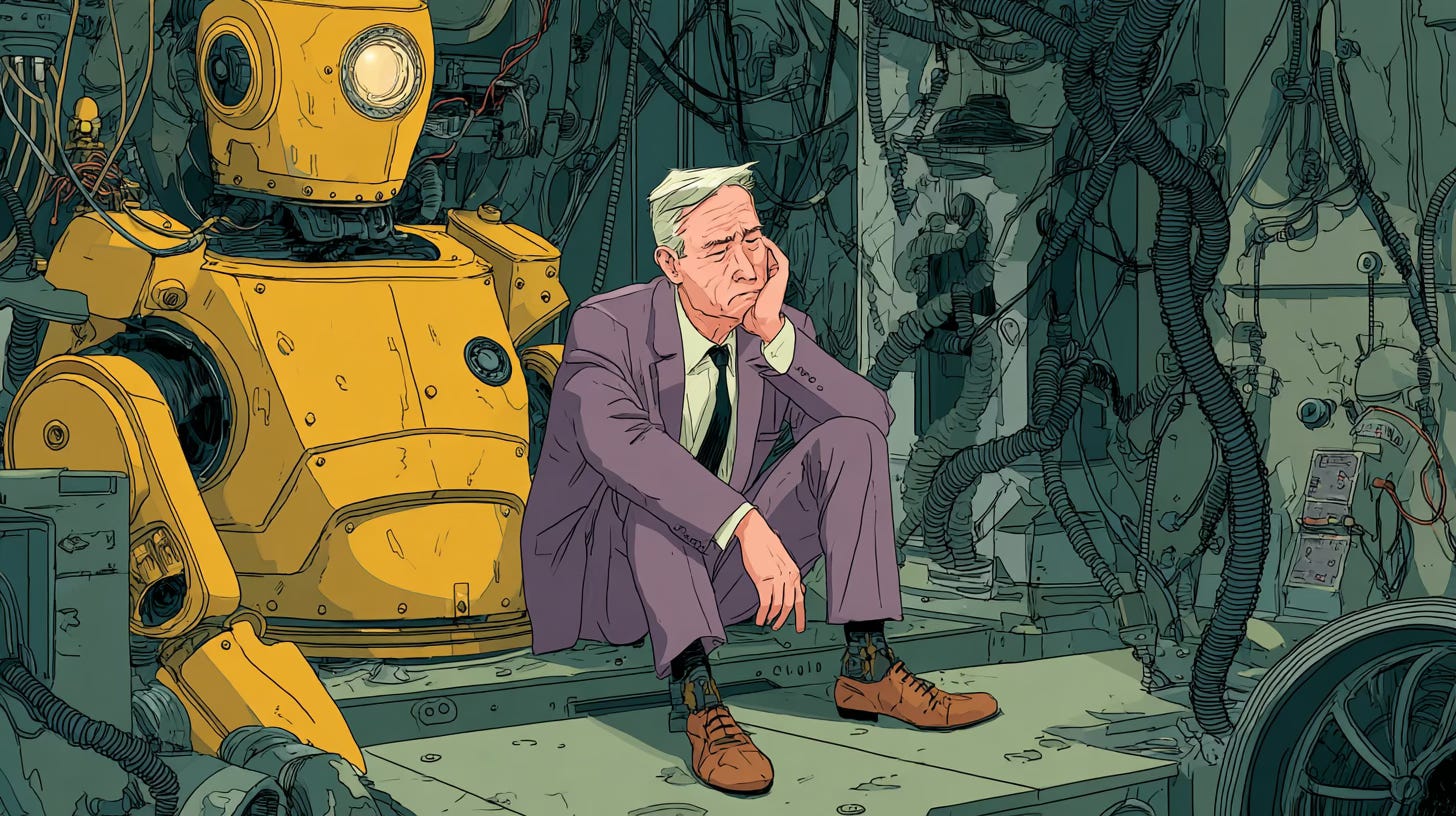🎯 The AI Point of No Return: When Billion-Dollar Bets, Silent Panics, and Global Laws Collide 🌍⚡
Would you like to be featured in our newsletter🔥 and get noticed, QUICKLY 🚀 (57K+ subscribers)? Reply to this email or send an email to editor@aibuzz.news, and we can take it from there.
⭐⭐⭐⭐⭐⭐⭐⭐⭐⭐⭐⭐⭐⭐⭐⭐⭐⭐⭐⭐⭐⭐⭐⭐⭐⭐⭐⭐⭐⭐⭐⭐⭐
Would you like to be featured in our newsletter🔥 and get noticed, QUICKLY 🚀 (57,000+ subscribers)? Simply reply to this email or send an email to editor@digitalhealthbuzz.com, and we can take it from there.
⭐⭐⭐⭐⭐⭐⭐⭐⭐⭐⭐⭐⭐⭐⭐⭐⭐⭐⭐⭐⭐⭐⭐⭐⭐⭐⭐⭐⭐⭐⭐⭐⭐The moment we’ve all been anticipating has arrived—and according to Nvidia’s CEO, there’s no turning back. This week, we’re seeing three simultaneous signals that AI has crossed from experimental technology into permanent infrastructure: Jensen Huang is declaring that AI has achieved a self-sustaining “virtuous cycle” that will only accelerate from here. Game developers are discovering that AI has already infiltrated their industry far deeper than anyone publicly admits, creating an atmosphere of quiet panic about what comes next. And halfway around the world, Kazakhstan just became one of the first nations to pass comprehensive AI legislation, drawing legal lines around who owns what in an AI-generated future. These aren’t isolated incidents—they’re three sides of the same transformation. The speculation phase is over. The institutionalization phase has begun. Let’s dive into what happens when AI stops being a bet and starts being the foundation.
The AI Money Machine: Jensen Huang Says We’ve Hit the Point of No Return
Nvidia CEO Jensen Huang just made a declaration at the APEC CEO Summit that should change how we think about AI’s trajectory: “AI has now achieved the virtuous cycle.” What does that mean? Better AI attracts more users, more users generate more revenue, more revenue funds bigger infrastructure, and bigger infrastructure creates even better AI. It’s a self-reinforcing loop that accelerates without outside intervention. Huang isn’t predicting a future tipping point—he’s declaring we’ve already crossed it. This is why global capital expenditure in AI is exploding at unprecedented rates. The companies aren’t placing bets anymore; they’re responding to a demand cycle that feeds itself. The avalanche isn’t coming—it’s already here, gaining speed, and according to the man whose chips power most of the AI revolution, there’s no mechanism to slow it down.
The Silent Revolution: Why Game Developers Are Quietly Panicking About AI
The gaming industry’s worst-kept secret: AI is already everywhere, and most players have no idea. Research shows roughly one in five Steam games this year used generative AI during development—but that’s only counting studios that disclosed it. AI is dubbing dialogue, generating placeholder art, and debugging code across major studios. Game designer Mike Cook confirms AI integration runs far deeper than public admissions suggest. But here’s where the panic sets in: developers speaking off the record paint a very different picture from corporate optimism. Every productivity gain from AI creates pressure to do more with less, and every studio that adopts these tools forces competitors to follow or fall behind. The revolution isn’t loud because it doesn’t need to be. It’s happening in thousands of small optimizations, each barely noticeable, all of them collectively reshaping an entire industry while everyone pretends everything is fine.
Kazakhstan Takes a Bold Step Into the AI Future: What Their New Law Means for Creators and Tech
While the world debates AI regulation in theoretical terms, Kazakhstan just passed actual legislation with clear answers. In September 2025, their parliament approved comprehensive AI laws tackling the thorniest question: who owns AI-generated content? Their answer is surprisingly nuanced. If AI creates content entirely on its own with no human input, it gets zero copyright protection—it’s public domain. But the creative prompts you craft to instruct AI tools might actually be protected as intellectual property. The output isn’t yours, but your instructions could be. What makes this significant is the timing—Kazakhstan isn’t waiting for global consensus or following Western frameworks. They’re planting their flag while much larger nations are still forming committees. For creators and tech companies, Kazakhstan just created a potential blueprint for how copyright adapts to AI. Whether others follow or chart different paths, the conversation just shifted from “what should we do?” to “here’s what one country actually did.”




Kazakhstan ... the stans are coming.